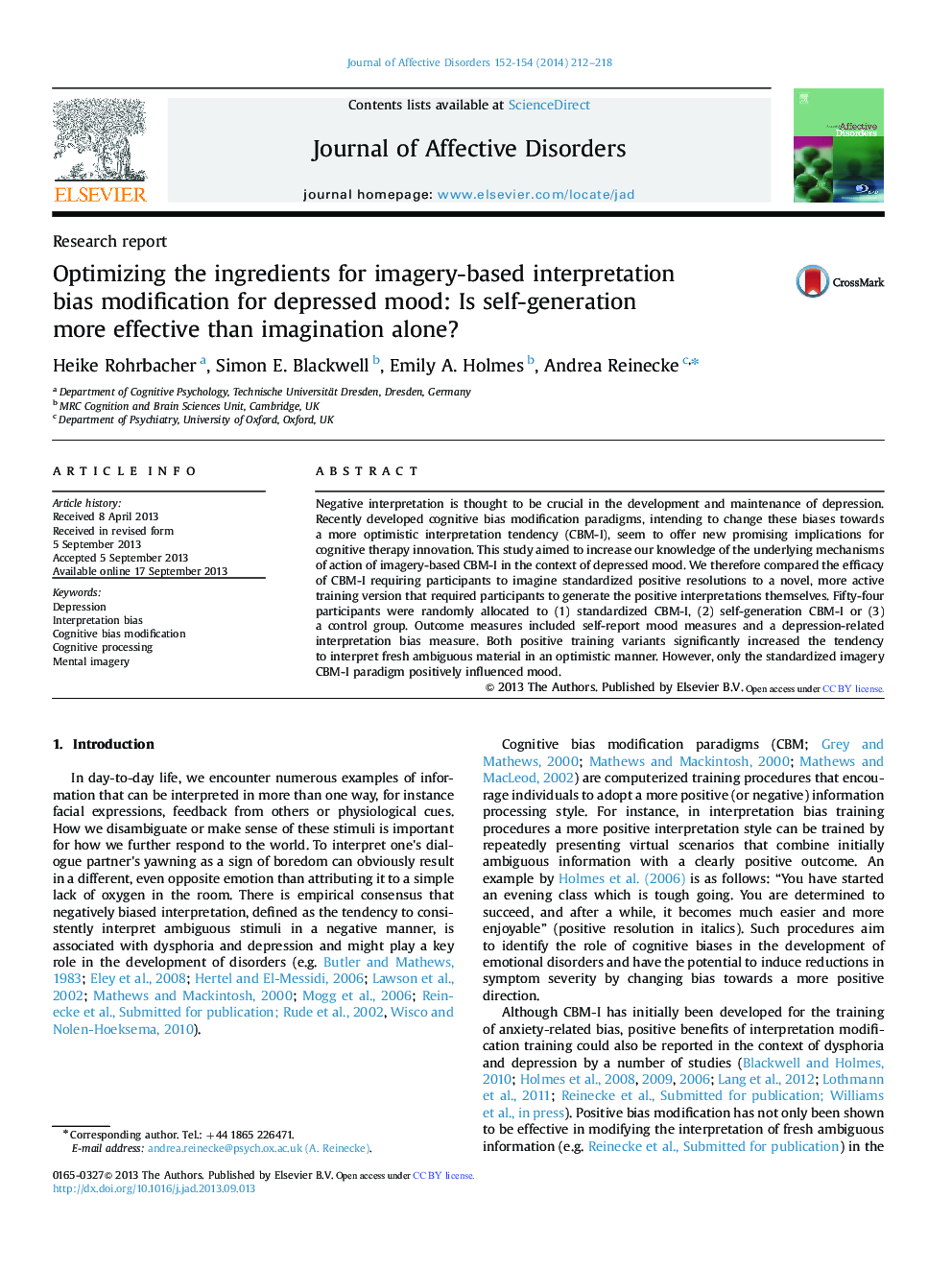| Article ID | Journal | Published Year | Pages | File Type |
|---|---|---|---|---|
| 6233147 | Journal of Affective Disorders | 2014 | 7 Pages |
Negative interpretation is thought to be crucial in the development and maintenance of depression. Recently developed cognitive bias modification paradigms, intending to change these biases towards a more optimistic interpretation tendency (CBM-I), seem to offer new promising implications for cognitive therapy innovation. This study aimed to increase our knowledge of the underlying mechanisms of action of imagery-based CBM-I in the context of depressed mood. We therefore compared the efficacy of CBM-I requiring participants to imagine standardized positive resolutions to a novel, more active training version that required participants to generate the positive interpretations themselves. Fifty-four participants were randomly allocated to (1) standardized CBM-I, (2) self-generation CBM-I or (3) a control group. Outcome measures included self-report mood measures and a depression-related interpretation bias measure. Both positive training variants significantly increased the tendency to interpret fresh ambiguous material in an optimistic manner. However, only the standardized imagery CBM-I paradigm positively influenced mood.
